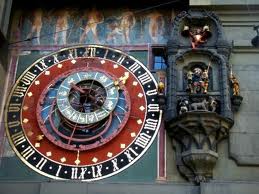Nothing new comes of thinking about a problem the same way we created it, Einstein said. It was a good rationale for his reluctance to repeat experiments and collect data that had already been collected by someone else or to follow the directions for an experimental protocol. If he was going to repeat an experiment for which results were already on record, he’d invent his own method. For insisting on doing the experiments his own way, Herr Professor Pernet flunked him in introductory physics lab. Out of a possible 6, Einstein scored 1. And given his upstart attitude, it is not surprising, then, that when he graduated, none of his professors would hire him on as an assistant–the usual career trajectory for a graduate of Zurich’s Polytech (the ETH).
But wasn’t this ability, his inclination to reject existing methods and accepted modes of thought, what enabled him to re-envision various problems in physics, to question the constants that physicists had built upon? And how difficult this is, accepted thought being so foundational that most of us don’t realize we’ve confused it with truth.
Time, for instance. It took Einstein to suggest it’s not the universal constant. (And in the past year, some physicists are theorizing that the speed of light is also not constant, a discovery which, if proven, might lead to the unified field theory Einstein sought.)

